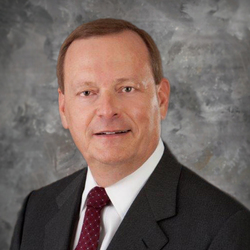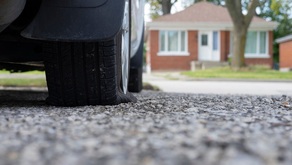Reverse Mortgage
You've invested so much into your home, now it's time for it to return the favor.
If you're 62 or older, a reverse mortgage can help turn the equity in your home into extra cash for retirement, giving you more freedom to do the things that matter most — whether that’s covering everyday expenses, traveling a little more or simply feeling more secure.
We offer a type of reverse mortgage known as a Home Equity Conversion Mortgage (HECM) — a federally insured program that has helped many homeowners achieve greater financial peace of mind in retirement. In addition to HECMs, we also offer jumbo reverse mortgage options for those with higher-value homes who may exceed the HECM lending limits.
Whether your goal is to stay in the home you love or make a move that better suits your next chapter, we’re here to help guide you through the possibilities.
Benefits
Live Where You Want to Be
Stay in your current home or purchase a new one that better suits your lifestyle and needs.

Skip the Monthly Mortgage Payment
Add flexibility to your monthly budget. With no required mortgage payments, focus on what matters most in retirement.
Access Your Funds Your Way
Choose a lump sum, monthly payout or line of credit, whatever fits your plan and priorities.

Use the Money for What Matters
Pay off bills, plan for healthcare or make room in your budget with a financial cushion for peace of mind.

Never Owe More Than It's Worth
Reverse mortgages are non-recourse loans — your repayment will never exceed the value of your home.

Work With People You Trust
Our friendly local loan officers are here to guide you through the process, without pressure.
How a Reverse Mortgage Works
If you're considering a reverse mortgage (Home Equity Conversion Mortgage, or HECM), here’s how it works from start to finish:
Reverse mortgages are for homeowners age 62 or older who live in their home and have built up equity. The amount you can borrow depends on your age, home value and current interest rates.1
You can take your money as a lump sum, monthly payments, a line of credit or a combination. It’s up to you.
You don’t make monthly mortgage payments.2 Instead, the loan is repaid when you sell your home, move out or pass away. If your home is worth more than the loan balance, the remaining equity goes to you or your heirs.
1All loans subject to credit and underwriting approval. Additional terms and conditions may apply.
2You must continue paying property taxes, homeowners insurance and keeping the home in good condition.
Frequently Asked Questions
What is a reverse mortgage?
A reverse mortgage is a special type of loan for people age 62 or older. The most common kind is called a Home Equity Conversion Mortgage (HECM), which is insured by the FHA.
Am I eligible for a reverse mortgage?
- At least one borrower must be 62 or older
- The home must be your primary residence
- The property must meet FHA standards
- You need sufficient home equity
Will the bank own my house?
No. You will retain the title and ownership of the home as long as you meet the loan requirements.
How much money can I get?
This depends on your age, the value of your home, current interest rates, FHA limits, and the loan type you choose. We can provide a personalized quote with no cost or obligation.
How do I receive the funds?
It depends on whether your reverse mortgage has a fixed or adjustable rate:
- Fixed-rate: You’ll typically receive a single lump sum at closing.
- Adjustable-rate: You may choose a lump sum, monthly payments, a line of credit or a combination of these options.
Is the reverse mortgage insured?
Yes. The HECM reverse mortgage is insured by the FHA to protect both borrowers and lenders. This ensures you receive your loan proceeds as agreed.
What are the costs?
Costs can include interest, closing costs, an origination fee, a title fee, a credit report fee, mortgage insurance premium, appraisal fee, and a fee for the required counseling session.
What is the lending limit for a reverse mortgage, and what if my home is worth more?
Most reverse mortgages are part of a federally insured program called a Home Equity Conversion Mortgage (HECM). With a HECM, there’s a cap on how much of your home’s value can be used to calculate the loan amount.
If your home is valued above that cap, you may want to consider a jumbo reverse mortgage. These loans are designed for higher-value properties and allow access to a greater portion of your equity — while still providing the key advantage of no monthly mortgage payments.
Contact Us
For more information about whether or not a HECM is right for you, contact our Reverse Mortgage Advisor:

|

|
| Dan Mabey | Jim Nebeker |








